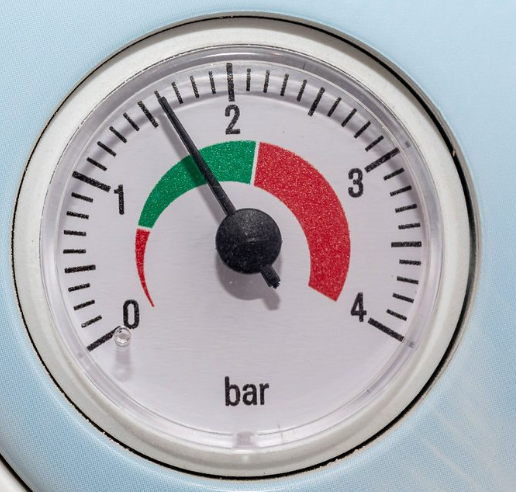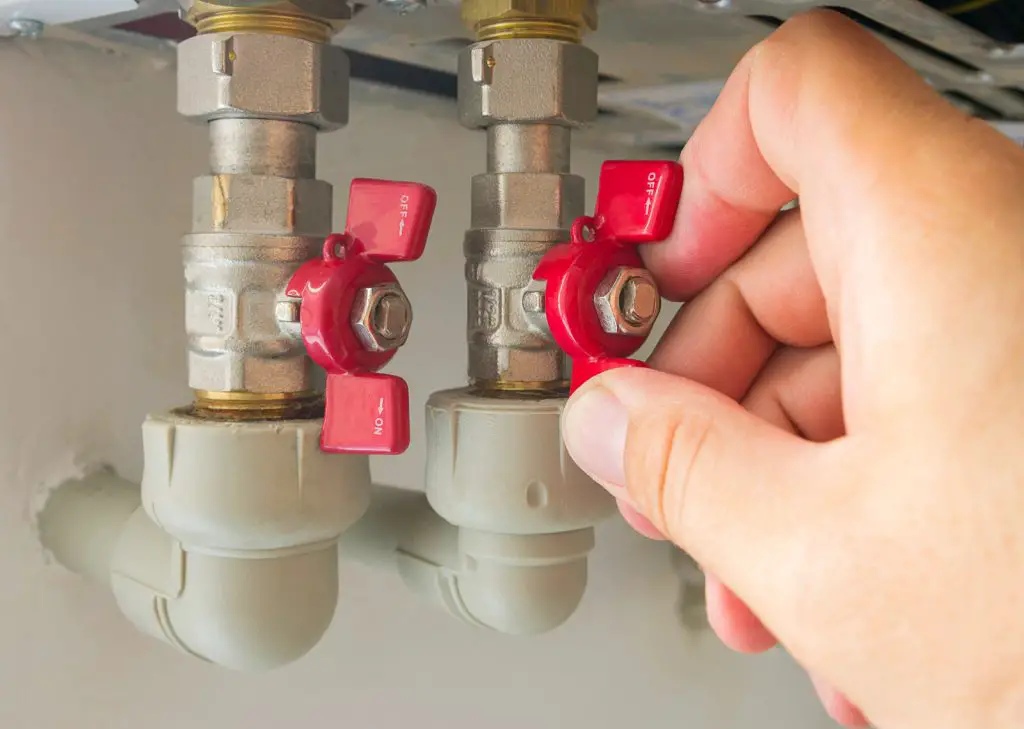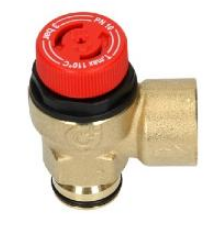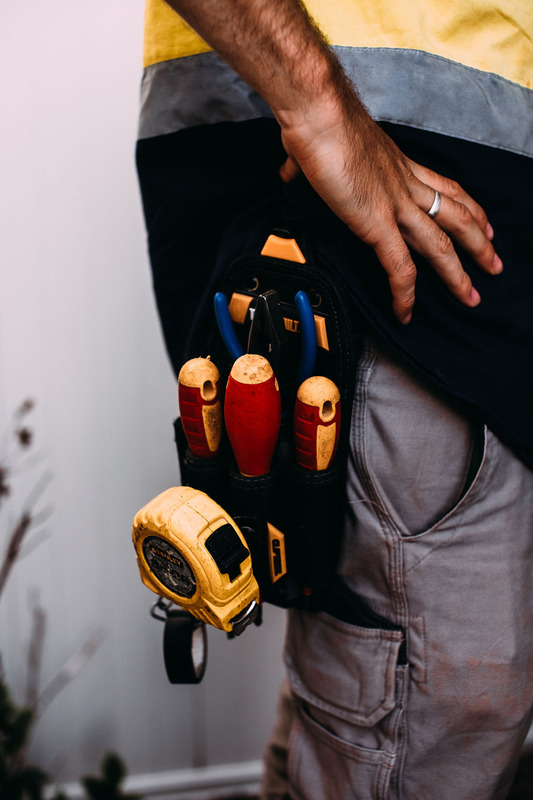In a pressurised system, steady pressure is maintained to work properly. Even when your heating system is working correctly, your Ideal boiler will lose some of its pressure over time and you may need to top it up twice a year. Boilers can often lose pressure for other reasons and this causes poor performance in providing heating and hot water.
Why does my boiler keep losing pressure?
An Ideal boiler normally loses pressure once or twice a year. But regular pressure loss is a cause for concern. The main causes for an Ideal boiler to lose pressure are water leaks in the system. A faulty pressure relief valve or expansion vessel will also cause the boiler to keep losing pressure, sometimes with no obvious sign of a leak. The system will also lose pressure after bleeding radiators.

Key Takeaways
The ideal pressure for a boiler is 1-1.5 bar when cold, indicated on the front pressure gauge. If pressure drops below 1 bar, the boiler may stop working; increase it via the filling loop. If pressure is above 1.5 bar, it’s too high; reduce it by bleeding radiators, opening a drain valve, or using the pressure relief valve.
Ideal Boiler Reviews: The Best Boilers for Your Home in 2023
IdealKeeping boiler pressure in the optimal range ensures efficient operation. Check it occasionally and top up or reduce as needed. Persistent pressure issues may require a boiler service to identify and repair faults.
What is the correct pressure for an Ideal boiler?
The correct pressure for an Ideal boiler is between 1 bar and 1.5 bar when the heating is off. The green area on the pressure gauge on the front of the boiler shows you exactly what the pressure should be. It is important the pressure does not climb higher than 2.5 bar when the heating is on and you should know how to lower it if needed.
If your boiler pressure keeps dropping, especially when the heating is off, and you have to top it up regularly, it would indicate a bigger problem that needs to be investigated further.
Can a boiler lose pressure without a leak?
In the vast majority of boilers that lose pressure, the cause will be a water leak, whether that is in the pipe joints, radiator valves, or radiators themselves. If you have checked and found no leaks, it is likely an internal boiler leak that isn’t easily spotted. Internal components are fairly reliable with Ideal boilers, and not usually prone to leaking. Contact a qualified engineer to investigate.
Ideal Boiler Pressure: Everything You Need To Know
Check to see if a leak is from the boiler or the system
With this method, you can check if a leak is coming from the boiler or the other parts of the heating system, like the pipes and radiators. Before going to bed, isolate the boiler from the system by turning it off at the mains switch. Then close the central heating flow and return valves only at the bottom of the boiler, and these are in different positions depending on the model.
Once the boiler is isolated from the system, you can either increase the pressure up to 2 bar on the gauge using the filling loop, or make a precise note of what the pressure is at the moment.
In the morning, check if the pressure has gone down at all. If it has, this means the leak is from the boiler. If the pressure stays the same, the leak is likely somewhere else in the system. Reopen the flow and return valves and switch on the boiler. If you see the pressure drop soon after, this verifies the leak is not in the boiler.

Pressure dropping on boiler every day
The most common reasons for a boiler to lose pressure every day are: a big system leak, a pressure relief valve that’s been damaged by a faulty expansion vessel; and radiators that have been bled and the system has not been topped up afterward. These issues can cause a pressure loss occurring daily if not fixed in time.
Boiler pressure drops when hot water is running
If you get a pressure drop when hot water is running, this is a sign of a leak. You may not see obvious signs of a leak under the boiler, or other visible parts of the heating system. The heat exchanger within the Ideal boiler could be leaking where the water drips into the condensate pipe so you don’t see any visual signs.
Ideal Boiler Won’t Turn Off: Tips And Tricks
With all combi boilers including Ideal, when water pressure drops below 0.5 bar of pressure, a pressure sensor inside the boiler detects the change and causes the boiler to switch off. This is a precautionary measure to stop the boiler from operating without adequate levels of water which can cause it to overheat.
Is low boiler pressure dangerous?
Low boiler pressure is not dangerous but will make the boiler perform poorly. As the system loses more pressure, it will put extra strain on the boiler and you will end up paying higher bills. Over time, if the cause of the low pressure is not found and fixed, the boiler will eventually stop working altogether and refuse to start.
Causes of pressure drop when heating is off
Water leak
This is the first and most obvious cause of a pressure drop on a system. How often the system needs to be repressurised depends on how much water is leaking. To find where a leak could be coming from, first go round each radiator to check the valves and compression fittings on it are tight and not weeping water anywhere.
If they are tight, check on ceilings for stains or damp patches. After that, you may have to take up floorboards and look under floors for leaks. If you don’t see an obvious leak, you can use a central heating leak sealer like Fernox F4 Express which finds and seals a leak in a system.
Ideal Combi Boiler Hot Water Goes Cold: What To Do
Faulty Expansion Vessel loses boiler pressure
Either it has lost charge i.e no air is in it anymore so water continues to fill the vessel without resistance; or the Schraeder valve which sits on the top or the side of the vessel, is leaking. Both these scenarios can cause a pressure drop which you may notice even when the heating is off.
Most combi boilers have the expansion vessel within the casing and you will need to call out a qualified gas engineer to take a look at it. We recommend Hometree for this.
Hometree offers customers peace of mind with home care packages for their boiler, central heating, plumbing, drains and home electrics all at an affordable monthly or annual cost.
Hometree’s aim is to take the stress out of boiler servicing and home maintenance with unlimited call-outs and a 24/7 helpline, as well as a no price-hike promise.
Pressure relief valve

When the system is on, pressure increases. If it reaches 3 bar the pressure relief valve will expel the pressure from the system by releasing water from it. If the PRV is faulty and cannot perform this action, when the system cools down you will notice a big drop on the pressure gauge.
You can tell if the PRV may be faulty by checking on the outside of the wall where the boiler is fitted, and looking for a 15mm copper pipe. When the central heating is on and you notice a drip here, it can indicate the PRV needs replacing.
Leaking Heat Exchanger makes pressure go down
A cracked heat exchanger within the Ideal boiler can cause the pressure to go down. An added problem here is that the water leak goes down the condensate pipe and so isn’t noticed anywhere in the house. This is also a very expensive part that needs replacing.
Where Is The Best Place to Install My Boiler? Ideal Locations
Bleeding air out of radiators causes pressure loss
If you have had to bleed air out of radiators because they weren’t getting warm, it causes the pressure to drop on your boiler gauge which you notice when the heating is off. Before turning the system back on, remember to add water back into it to raise the pressure to the correct level.
What should boiler pressure be when heating is off?
The pressure gauge on an Ideal boiler will show anywhere between 1 and 2.5 bar when the heating is turned on. The upper limit will be shown on the green zone of the pressure gauge. It is important the boiler doesn’t stay over this limit. Each manufacturer sets its own upper limit but most go up to 2.5 bar.
What happens if there is no pressure in the boiler?
If there is low or no pressure in the boiler you have lost water that is needed to work efficiently. Parts in your boiler won’t be damaged by this, but the boiler has to work harder to heat the house up and provide hot water, increasing energy bills. Your boiler may not even start up until pressure has been raised.

Steps to repressurise an Ideal boiler
- Turn off the boiler and wait until the radiators have cooled.
- Find the filling loop which is on the boiler pipework.
- Open both the filling loop valves to let water into the system. Valves are open when they are in line with the pipes.
- Close both the valves when the pressure gauge rises to between 1 and 1.5 bar. Do this by turning them back to their previous positions.
- Switch the boiler back on. Wait for 2 minutes while it goes through its startup sequence.
- Press the reset button if any fault code comes on the display.
- Keep an eye on the pressure gauge. Over the next hour check that the pressure doesn’t get low again. If it does, you will need to call an engineer to find and fix the fault.
Summary
The main causes of a boiler that keeps losing pressure are:
- Water leaks in the heating system.
- Faulty Pressure Relief Valve.
- Faulty Expansion Vessel.
- Bleeding radiators.
- Failing boiler components.
Related Articles
